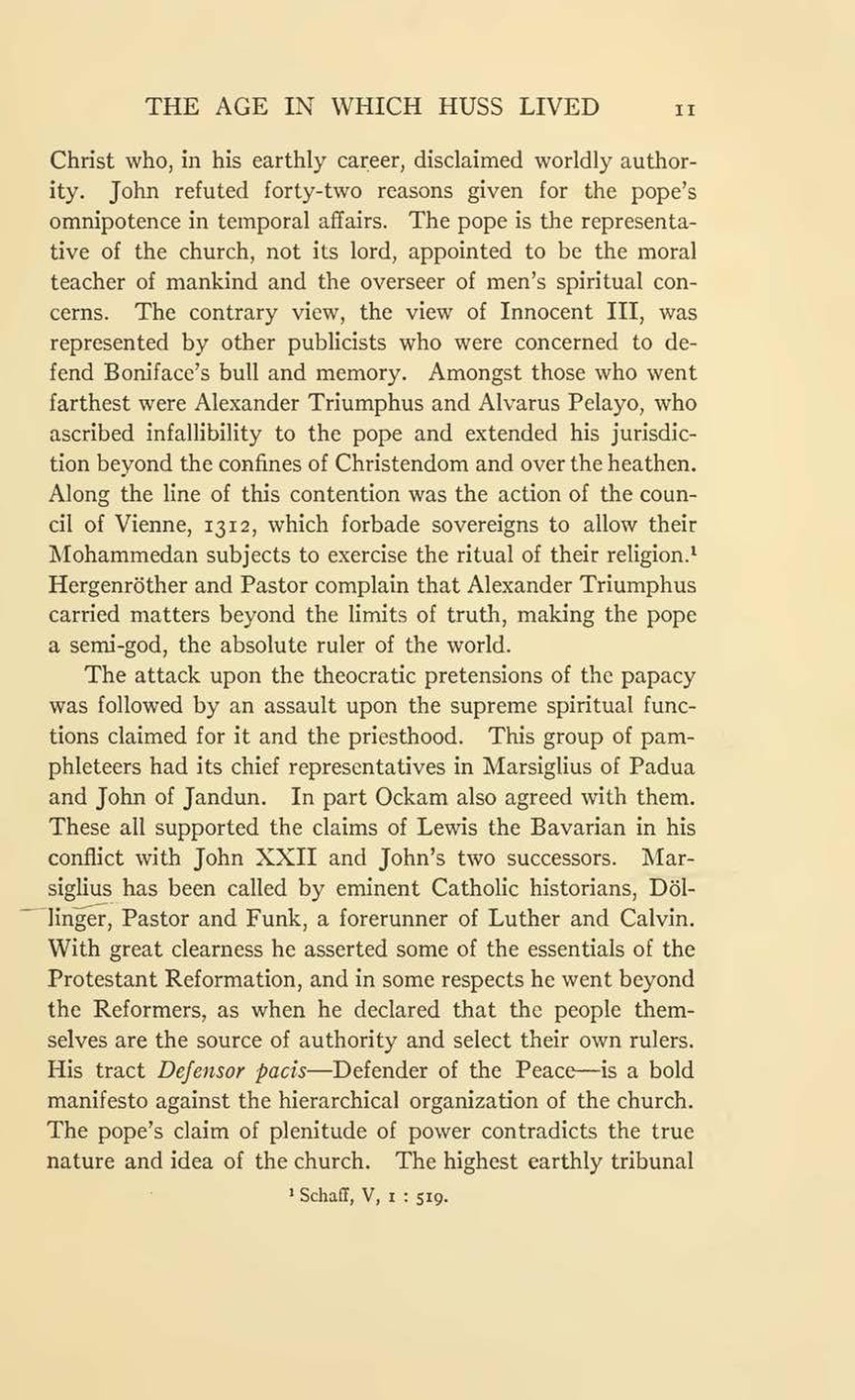Christ who, in his earthly career, disclaimed worldly authority. John refuted forty-two reasons given for the pope’s omnipotence in temporal affairs. The pope is the representative of the church, not its lord, appointed to be the moral teacher of mankind and the overseer of men’s spiritual concerns. The contrary view, the view of Innocent III, was represented by other publicists who were concerned to defend Boniface’s bull and memory. Amongst those who went farthest were Alexander Triumphus and Alvarus Pelayo, who ascribed infallibility to the pope and extended his jurisdiction beyond the confines of Christendom and over the heathen. Along the line of this contention was the action of the council of Vienne, 1312, which forbade sovereigns to allow their Mohammedan subjects to exercise the ritual of their religion.[1] Hergenröther and Pastor complain that Alexander Triumphus carried matters beyond the limits of truth, making the pope a semi-god, the absolute ruler of the world.
The attack upon the theocratic pretensions of the papacy was followed by an assault upon the supreme spiritual functions claimed for it and the priesthood. This group of pamphleteers had its chief representatives in Marsiglius of Padua and John of Jandun. In part Ockam also agreed with them. These all supported the claims of Lewis the Bavarian in his conflict with John XXII and John’s two successors. Marsiglius has been called by eminent Catholic historians, Döllinger, Pastor and Funk, a forerunner of Luther and Calvin. With great clearness he asserted some of the essentials of the Protestant Reformation, and in some respects he went beyond the Reformers, as when he declared that the people themselves are the source of authority and select their own rulers. His tract Defensor pacis—Defender of the Peace—is a bold manifesto against the hierarchical organization of the church. The pope’s claim of plenitude of power contradicts the true nature and idea of the church. The highest earthly tribunal
- ↑ Schaff, V, 1: 519.
